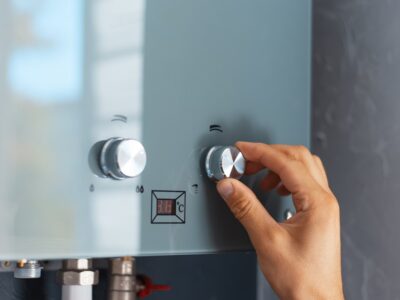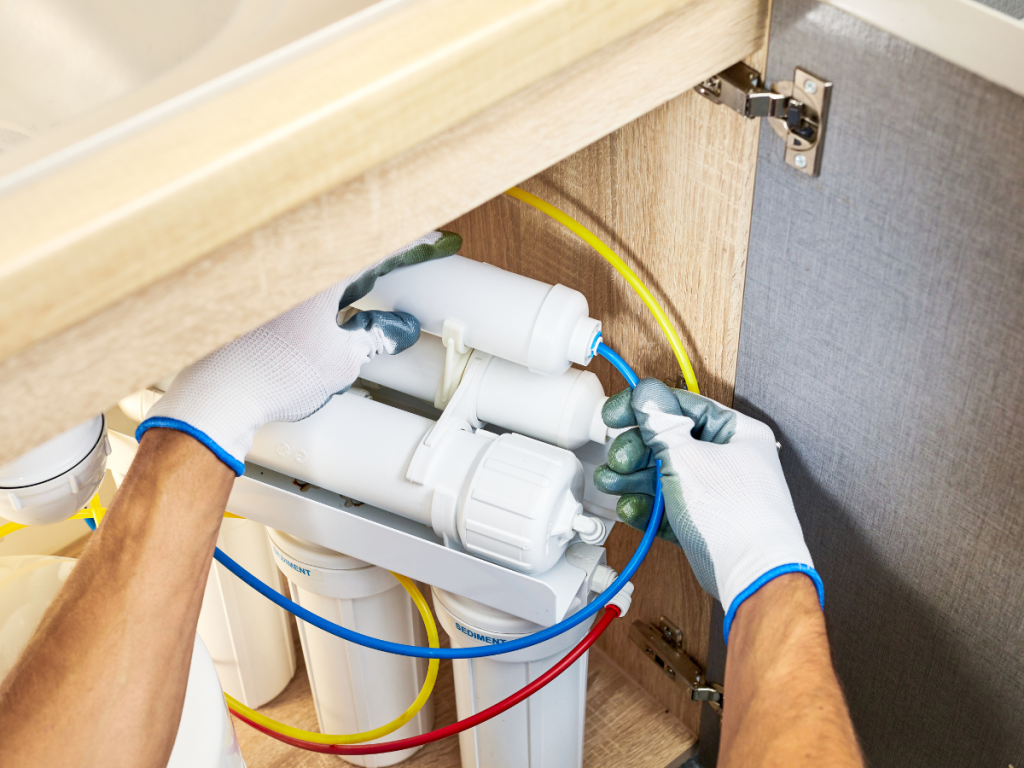You might be concerned if you turn on the tap and see water cloudy in your glass. Cloudy water can be tricky to solve. There are many things you can do to help it.
Let’s get started.
What Makes Water Cloudy?
Turbidity refers to the relative clarity of a liquid. To determine the true turbidity in tap water, shine a light onto it and measure how much light is scattered through the water. Higher levels of turbidity are associated with more scattered light.
There is an easier way. Just look at the water in your tap. You can see the difference between cloudy and milky water if you don’t have to shine a flashlight.
It is usually caused by one or more of the following:
Aeration
You can see tiny bubbles in your water if you look closely at it. This is an indication that your problem is probably with the aeration. This is what we call “white water” because it’s cloudy tap water.
All water contains dissolved oxygen. That’s the “O” in “H2O”. However, it is possible for some air to return to its gaseous form and cause cloudiness in your water. This can happen more frequently with warm than hot water. Cold water has a higher capacity to hold air. It is able to absorb more oxygen and doesn’t need bubbles.
The good news? Those tiny air bubbles don’t cause any problems. They are safe to drink and will dissipate from your glass upward, leaving your water clearer.
Hard Water
If the cloudiness persists after the water has settled, it could be hard water. This is one of the most prevalent water problems for both city and well water users.
High levels of calcium or magnesium can cause hard water. These minerals can build up in pipes and fixtures if they are heated by your water heater. This can lead to a cloudy appearance and doesn’t disappear like small bubbles of trapped oxygen.
Other signs of hard water include dry hair, dry skin, and soap scum.
Sediment
High levels of silt and clay can also cause cloudiness. This happens when water travels through your supply network from a municipal source to your well. The water could collect sediment from the environment along the way. If that sediment doesn’t completely dissolve, it can cause cloudy water. You might also see particles floating in your water, depending on how much contamination you have. *
Is Cloudy Water Safe?
Although it may not seem refreshing, a glass of cloudy water does not necessarily pose a danger to your health. There are many factors that affect water safety. However, if the cloudiness is your primary concern, here are some things you should consider.
- Aeration If your water is cloudy because of excess air, don’t worry. This water is safe for drinking.
- Hard water While drinking water is safe even when the hardness level is high this water can still cause irritation to your skin and hair, as well as your home’s plumbing.
- Sediment While cloudiness doesn’t always mean that it is harmful, sediment can create conditions where pathogens thrive. There’s also a correlation between the reduction in turbidity, and the elimination of single-celled organisms like disease-causing microbes.
Some causes of cloudy water can be harmless, while others could pose a risk. This is something you don’t want to guess about. To identify the source of cloudiness in tap water, you should have a professional perform a water test.
How To Fix Cloudy Water
After you’ve had a water test done and are confident that the problem is identified, it’s time for you to get to work. There are two options depending on the root cause.
Whole-House Water Filtration
A whole-home filtration system may be necessary if your water has a sediment buildup. These systems can be installed wherever your water comes into your home to filter any water that you use for cleaning, bathing, and drinking. This reduces the amount of sediment in your water, which leads to cleaner water.
Water Softening
A water softener may be the best option for you if your water test shows that hard water is an issue. These systems reduce calcium and magnesium which cause hard water. Your water will be softened by them. You can even adjust the settings to control the hardness of your water.
Both
Water softeners aren’t necessarily mutually exclusive. They address different problems and can work together very well. If you want soft water and cleaner water, you can double up on your water solutions.
Get a Free Water Test today
It’s always best to be safe when there is any doubt about your drinking water’s safety. An in-home water test is free and can provide valuable information about the quality of your water, including answers to questions about hardness levels, cloudiness, and other possible causes.
This post was written by a specialist at One Green Filter. One Green Filter specializes in water softener installation in Brandon FL. One Green Filter is Tampa Bay’s top Water Softener, Purification & Filtration Expert. Our customers chose One Green FIlter because of our consistently high level of service and superior products we use to deliver pure, delicious water to their homes, businesses, and schools across the Tampa Bay area. To schedule a free appointment to test the quality of your water at your convenience contact us today.








Comments